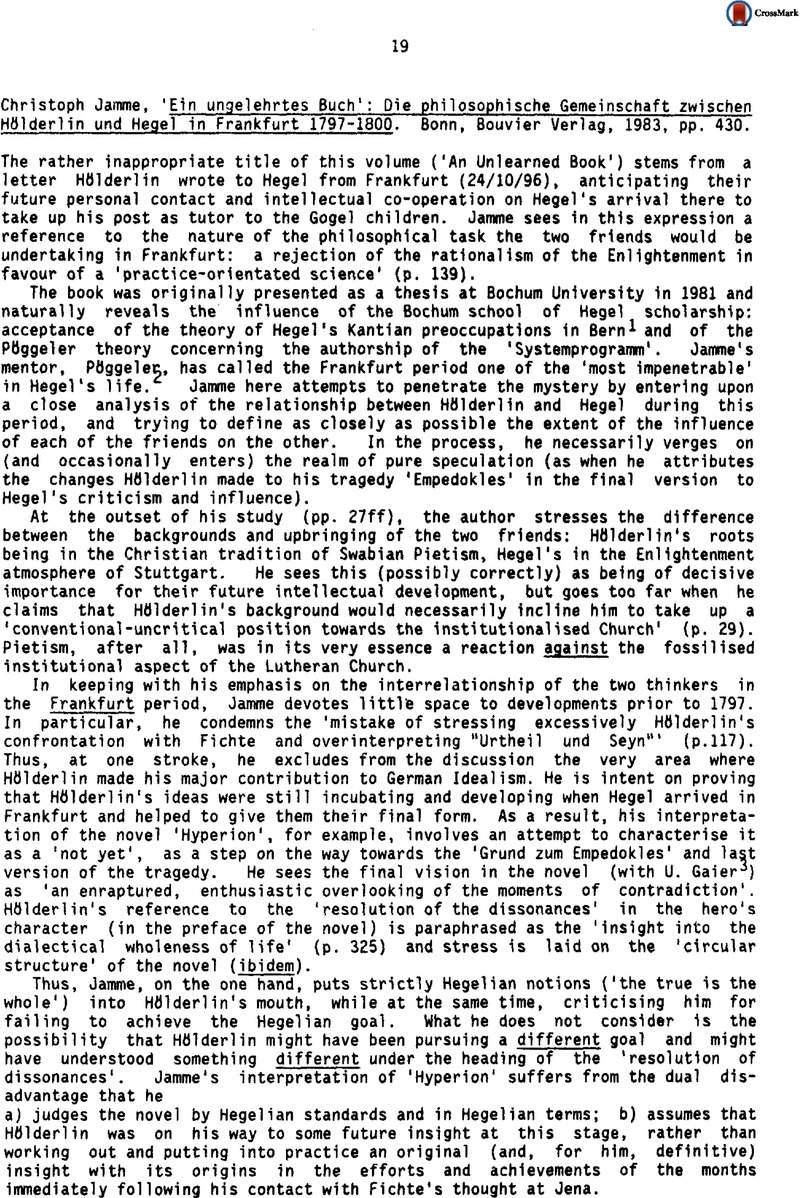No CrossRef data available.
Article contents
Christoph Jamme, ‘Ein ungeiehrtes Buch’: Die philosophische Gemeinschaft zwischen Hölderlin und Hegel in Frankfurt 1797-1800. Bonn, Bouvier Verlag, 1983, pp. 430.
Review products
Published online by Cambridge University Press: 23 June 2015
Abstract

- Type
- Book Reviews
- Information
- Bulletin of the Hegel Society of Great Britain , Volume 6 , Issue 1: number 11 , Spring/Summer 1985 , pp. 19 - 21
- Copyright
- Copyright © The Hegel Society of Great Britain 1985
References
Notes
1. On this subject, see the discussion in Dinkel, Bernhard, Per junge Hegel und die Aufhebung des Subjektiven Idealismus (Bonn, 1974), pp. 153–9Google Scholar.
2. Hegelstudien 8 (1973), p.24 Google Scholar, in his essay on ‘Sinclair-Hölderlin-Hegel’.
3. Hölderlinjahrbuch 21 (1978–1979), p.134 Google Scholar, in his essay on ‘Hölderlin's “Hyperion”’.
4. Following Hirsch, E., Die Beisetzung der Romantiker in Hegels Phanomenologie, in ‘Materialien zu Hegels “Phänomenologie des Geistes”, ed. Fulda, H.F. and Henrich, D. (Frankfurt a.M., 1973), pp.245–275 Google Scholar.
5. See, in particular, p.375.
6. The ‘resolution of dissonances’ occurs under the aegis of Love. It cannot bepermanent, since Strife must return, but it is nevertheless a ‘resolution’, however temporary. Unlike Hegel, for whom Strife and Evil are aufgehoben in the upward progress of Geist, and Heidegger, for whom Heraclitus' polemos and logos were the same and strife actually a unifying force (cf. Einführung in die Metaphysik). Hölderlin was not reconciled to the concept of Evil. The ‘mediation’ in his work is between mankind and Love/the Good (Plato's to kalon).




